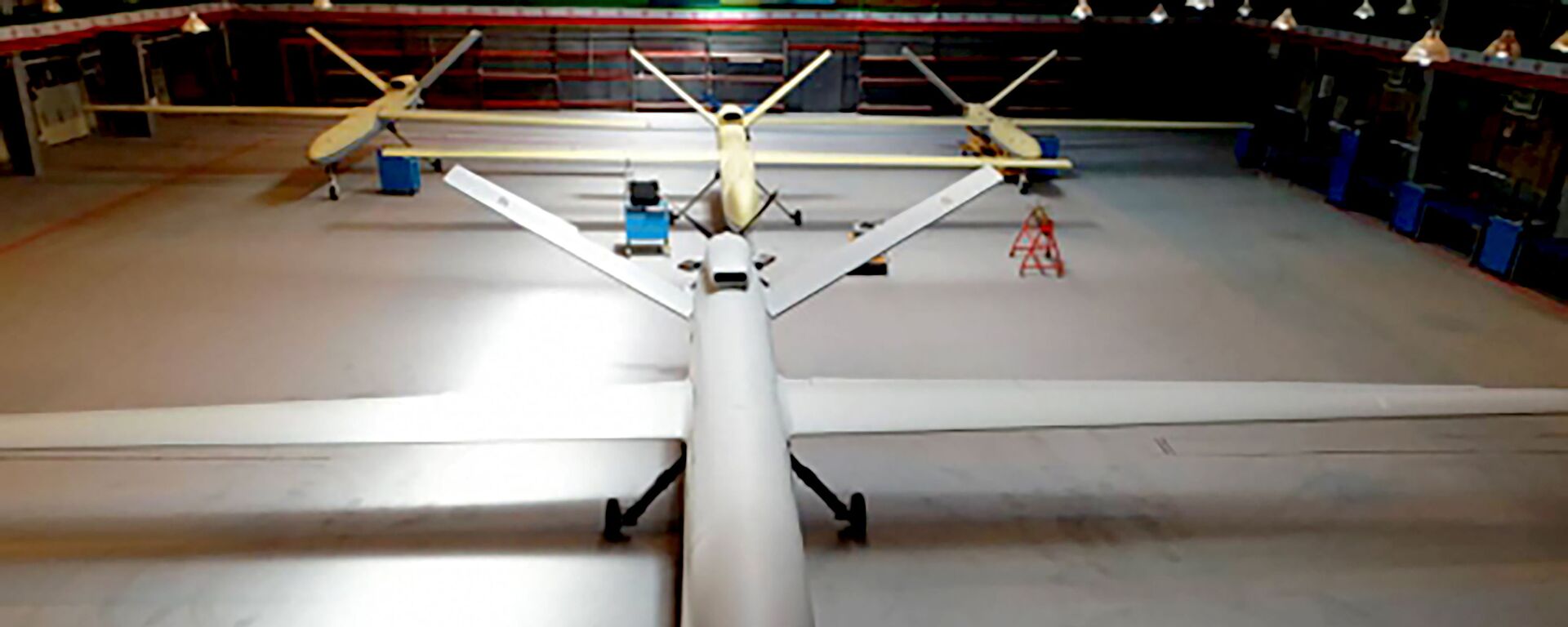US Claims It’s Thwarted Multiple Iranian Attempts to Smuggle Weapons, Oil to Yemen, Venezuela
10:36 GMT 08.12.2021 (Updated: 10:58 GMT 05.03.2023)

© Photo : Department of Justice
Subscribe
Washington, Riyadh and Tel Aviv have repeatedly accused Iran of trying to smuggle weapons and other supplies to the Houthis, who took control of large swathes of western Yemen in a popular uprising in late 2014. Tehran has denied the claims.
The United States seized about 1.1 million barrels of Iranian oil products destined for Venezuela, and two major caches of weapons allegedly sent by the Islamic Revolutionary Guard Corps (IRGC) to the Houthi insurgency in Yemen, the Department of Justice has announced, referring to six separate incidents said to have taken place between 2019 and 2020.
In a press statement released Tuesday, the DoJ indicated that all of the incidents took place ‘in or around the Arabian Sea’, and that the seizures were made by the US Navy in the course of “routine maritime security operations.” The agency said the petroleum seizures included oil aboard four foreign-flagged tankers, with the petroleum products sold following US court orders, netting Washington over $26.68 million in revenues, with some or all of this money to be directed to the so-called “US Victims of State Sponsored Terrorism Fund.”
The DoJ indicated that the weapons destined for Yemen’s Houthis were stashed aboard two “flagless vessels” operated by the IRGC. The caches were said to have included 171 surface-to-air missiles and eight anti-tank missiles. According to the agency, the weapons seizure took place on 25 November 2019 and 9 February 2020 in the Arabian Sea. In addition to SAMs and anti-tank missiles, the weapons reportedly included land attack cruise missile and anti-ship cruise missile components, thermal weapons optics and other parts for missiles and drones.
US courts ruled that the seizures were legal, citing the IRGC’s status in the US as a designated ‘foreign terrorist organization’, and accusing the entity of engaging in weapons trafficking operations (in the case of the arms seizures), and justifying the oil confiscations by claiming that they “provided a source of influence” for the IRGC in “furthering the affairs of the terrorist group’s enterprise.”
The US State Department formally designated the IRGC as a ‘foreign terrorist organization’ in mid-2019, prompting Iran to designate all US military forces in the Middle East as terrorists. In January 2020, after the unprovoked drone assassination of IRGC Quds Force commander Qasem Soleimani in Baghdad, Iraq, Iran’s parliament labeled the entirety of the US military and its Pentagon command as terrorists.
Iranian officials did not immediately respond to the DoJ’s announcement.
Tehran has long denied providing military assistance to the Houthi militants in their war against the Saudi-led coalition and the pro-Saudi Yemeni government, but does consider the Houthis to be a part of the Iranian-led ‘Axis of Resistance’ against terrorism and alleged US, Israeli and Saudi aggression, and provides the group with moral support.
Iran has repeatedly condemned the US and Israel over their alleged efforts to seize or sabotage the shipment of oil and petroleum products to its allies, including Venezuela and Syria.
On Tuesday, Zahra Ershadi, Iran’s deputy permanent representative to the United Nations, accused the US of using sanctions to disrupt the freedom of movement of Iranian oil tankers, and blasted countries’ illegal attempts to seize the Islamic Republic’s oil shipments.
“In addition to the previous acts…stolen Iranian oil and its drivers at sea have been a new development since last year. We strongly warn about the continuation of this dangerous policy that exacerbates an already highly intense situation due to such arrogant unilateral policies,” Ershadi said, urging the international community to “condemn these unlawful acts that threaten free trade at sea as well as freedom of seas.”



